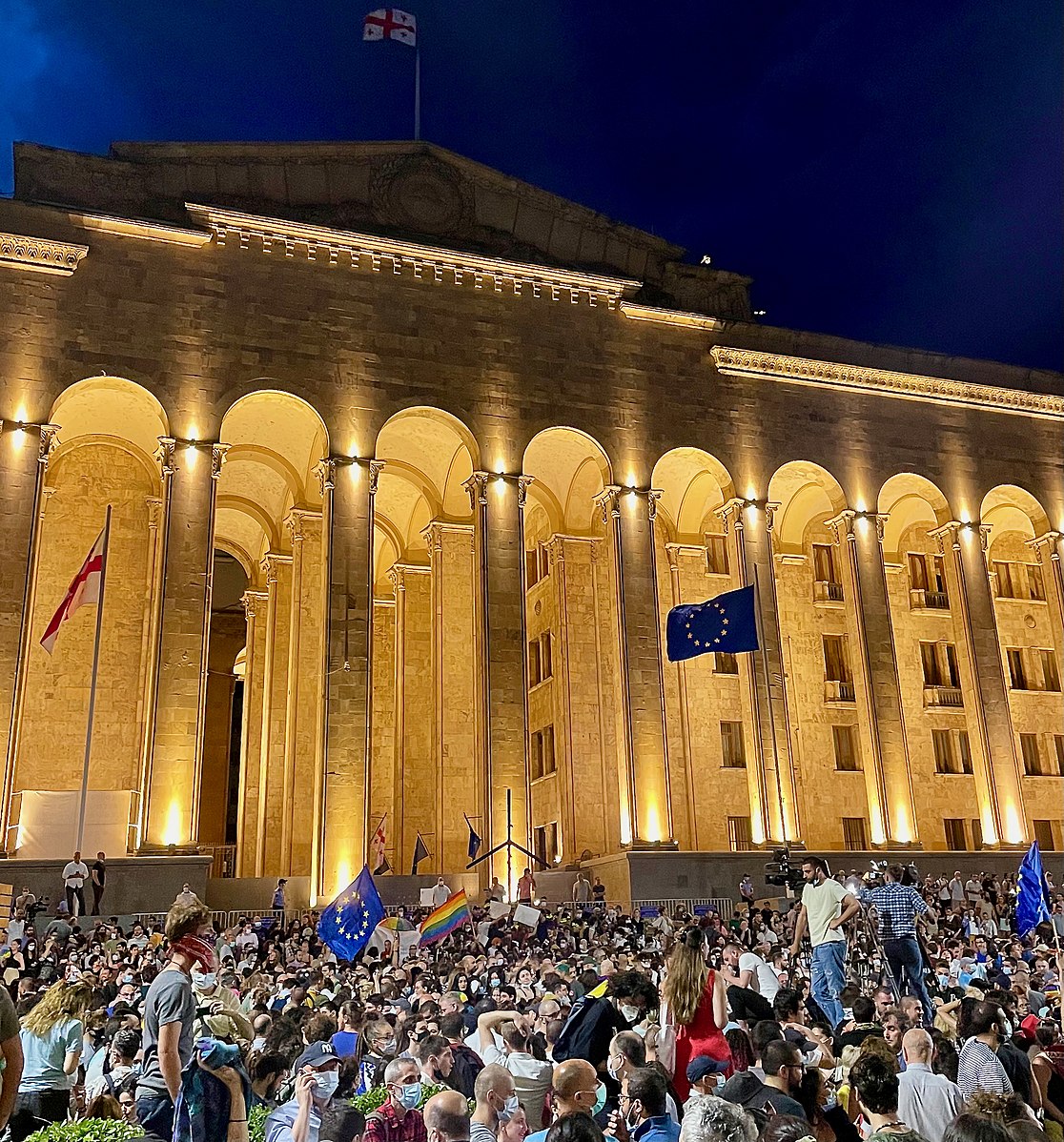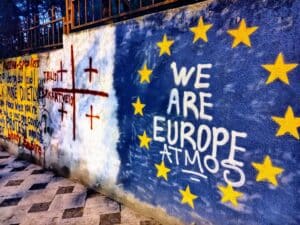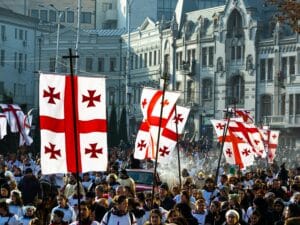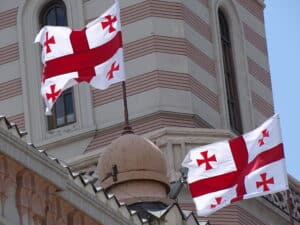When a breakaway group of the Georgian parliamentary majority proposed a controversial bill, few gave it a chance of success. This changed, however, when the ruling Georgian Dream party declared its support. The bill – which would brand media outlets and civil society groups that receive funding from abroad as ‘foreign agents’ – bears alarming resemblance to Russia’s infamous foreign agent law adopted in 2012. Strong action is needed to prevent the presence of an autocratic government in Tbilisi.
From low chance of success to rising concerns
On February 14, Georgian politics was taken by surprise by a new ‘foreign agents bill’ issued by the People’s Power party. The draft law would oblige all Georgian media outlets and NGOs receiving a minimum of 20% of their budget from foreign sources to register in a so-called ‘Foreign Influence Agents Registry’. Once registered, organisations would have to publish income declarations, as well as give the Ministry of Justice access to internal documents upon request. Organisations that fail to register will be handed a fine equivalent to €8900.
While few initially thought that the bill would be passed, that sentiment has changed since Irakli Kobakhidze – the leader of the countries’ ruling Georgian Dream party – has voiced his support for the bill. “I reviewed this draft law that was introduced yesterday. I can tell you that it is essentially about transparency”, Kobakhidze said.
That statement was followed by a worrying series of accusations against domestic opposition, the EU, and the West in general. Kobakhidze claimed that the EU sponsors extremists in Georgia, as well as ‘revealing’ a bizarre conspiracy in which the West would have blackmailed Georgian Dream-politicians to start a war against Russia.
People’s Power – the proposer of the draft law – is a group of 9 MPs that left the ruling Georgian Dream party last October to “speak openly about a supposed Western conspiracy to drag Georgia into war with Russia.” While being nominally pro-EU and losing the parliamentary majority, Georgian Dream curiously supported the breakaway.
Wide protest against “Putin’s law”
The outspoken pro-Western Georgian President Salome Zurabishvili was one of the first to criticise the bill, stating that it would be harmful to Georgia’s hopes of EU-accession. Zurabishvili furthermore suggested that she would veto the bill if it was passed: “The President of Georgia cannot support such legislation”.
She was joined by Daria Apakhonchik – a Russian activist who fled to Georgia – who warned of the alarming resemblance to a law adopted in Russia in 2012. “In Russia, this law started with organisations, and after a few years they changed the law and now it’s for individuals as well. It’s important to understand that if this is the beginning of the same process as what we had in Russia, then there will be a horrible ending”, Apakhonchik said.
On 20 February, journalists protested against the law by blocking the entrance to parliament and holding up banners that read “No to Putin’s law” and “No Russian law”. They were joined by over 350 NGOs based in Georgia in a statement titled ‘Russian law is not the will of Georgia’.
Foreign sources were quick to criticise the draft law as well. A member of the EU Parliament’s Foreign Affairs Committee immediately warned that the bill – if passed – would be a danger to Tbilisi’s aspirations of EU-accession. A spokesman of the US state department added to be “deeply concerned about [the bill’s] implications for freedom of speech and democracy in Georgia. We have expressed this to our interlocutors in Georgia.”
Georgian Dream drifts Georgia steadily away from Europe
The developments of late fit into a larger pattern since Georgian Dream’s rise to power in 2012. Support for EU-accession is notoriously high in Georgian society, with 85% supporting EU-accession and 51% seeing the EU as Georgia’s most important partner. While Georgian Dream – at least in appearance – pursued the wish of the Georgian population, there is no denying its current anti-Western course.
For example, Georgia refused to participate in anti-Russian sanctions after the latter invaded Ukraine. While this could be explained by economic reasons, statements made by the aforementioned Georgian Dream-leader Kobakhidze are much harder to explain. Open Caucasus Media investigated Kobakhidze’s critical comments since the start of the war and found out that out of 107 comments, 98 were critical of Ukraine, Ukrainian officials and the West. Only 9 were critical of Russia.
Other signs of Georgian Dream’s change of course include its rising influence in Georgia’s judiciary and the invitation of a Russian pro-Putin MP to address parliament. Moreover, Russian Foreign Minister Sergey Lavrov complimented Georgia in an interview for not becoming “another irritant” to Russia. “I will not go into details, but one of the countries that the West wants to turn into another anti-Russia is Georgia”, said Lavrov in a prelude to Kobakhidze’s aforementioned accusations.
Taking the above into account, the danger of the new foreign agent law to Georgian democracy becomes strikingly clear. The EU and its allies must undertake strong action to inform the Georgian public of the bill’s dangers. If it fails to do so, it risks losing Georgia to Moscow’s sphere of influence.
Author: David Groenen



